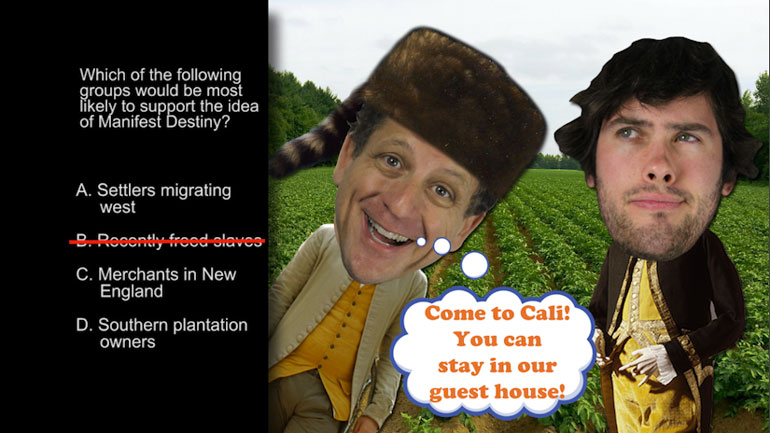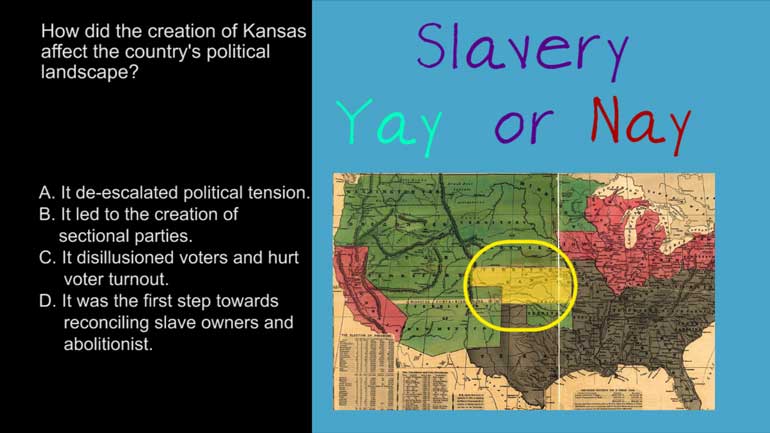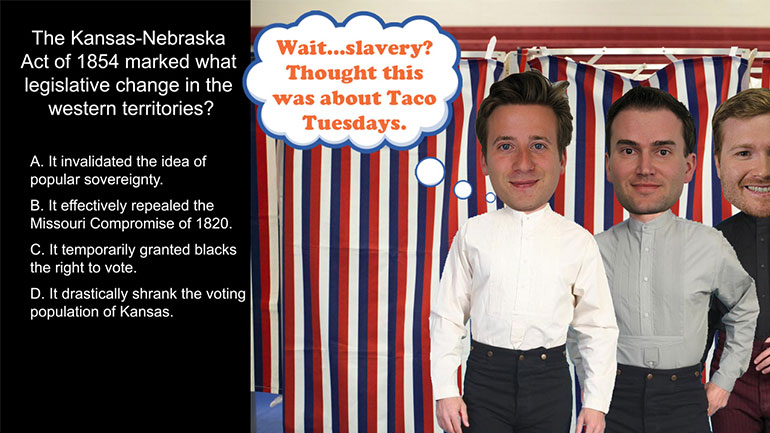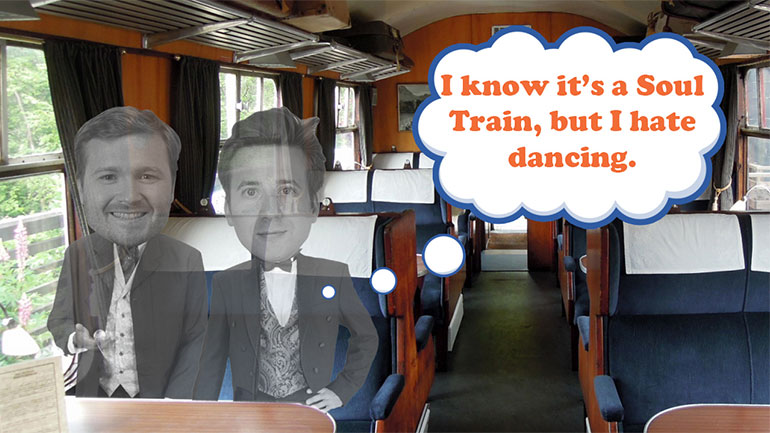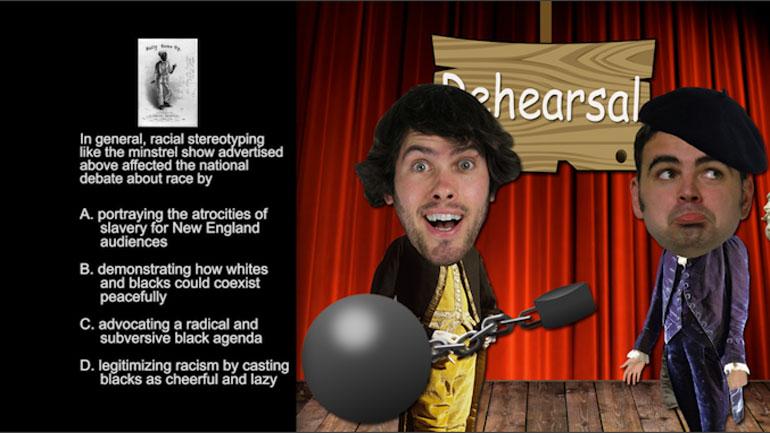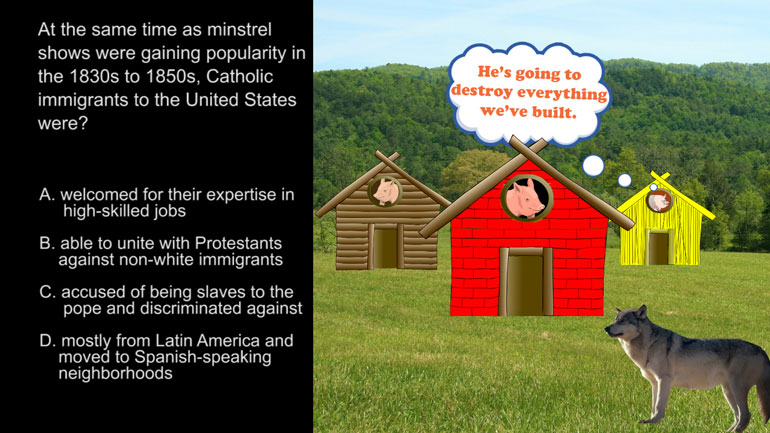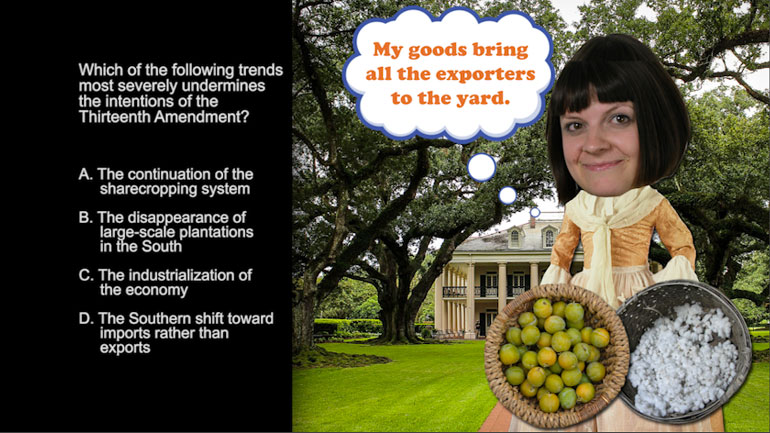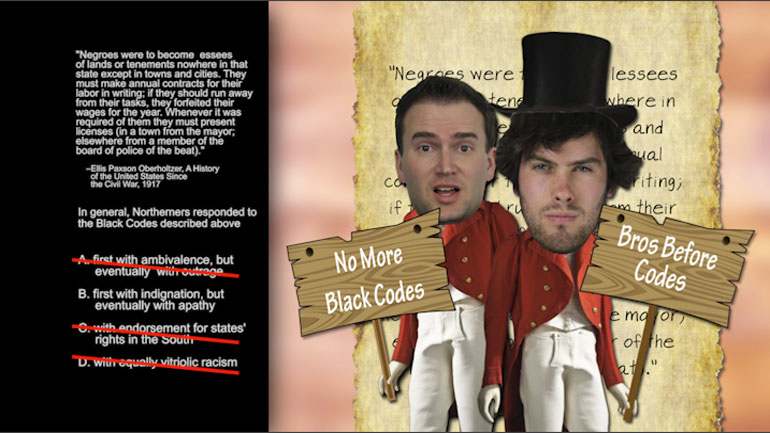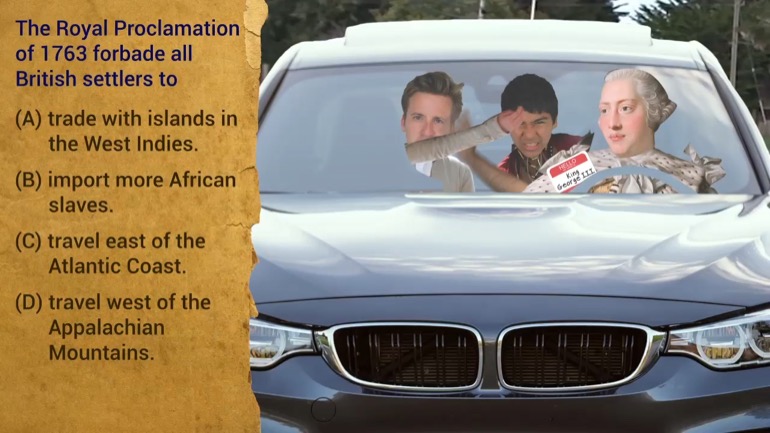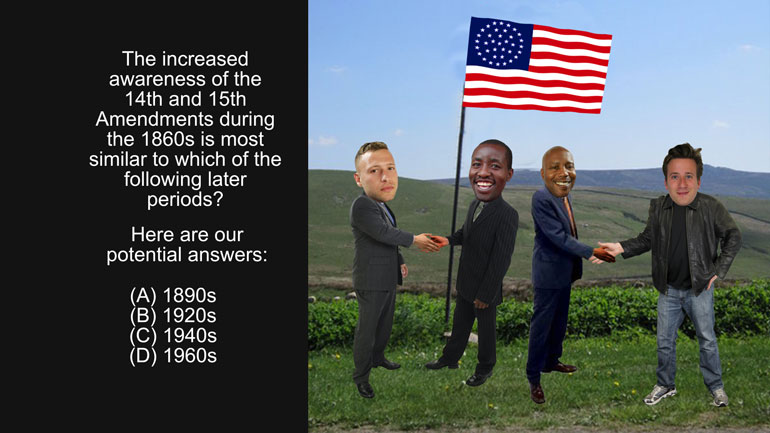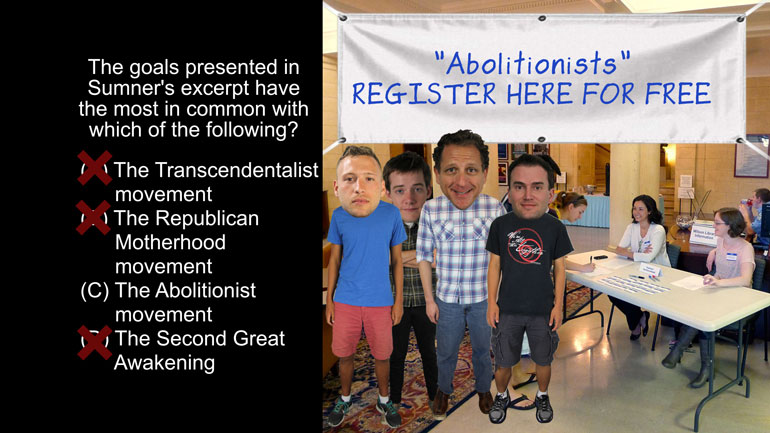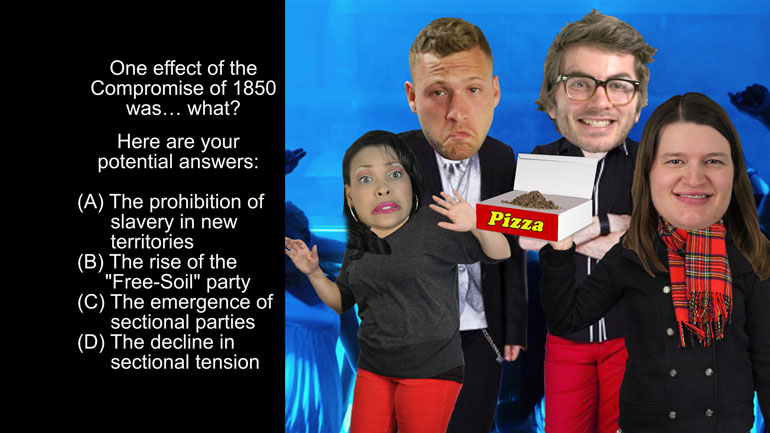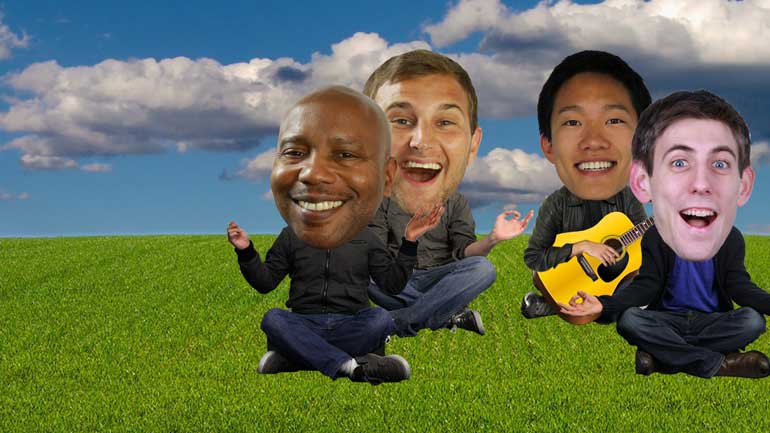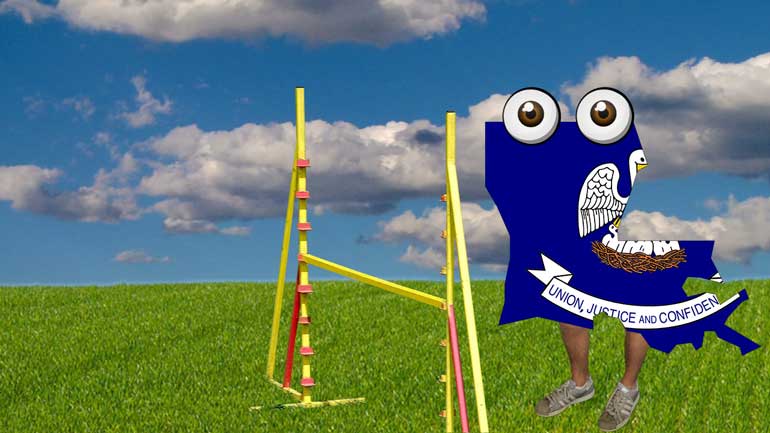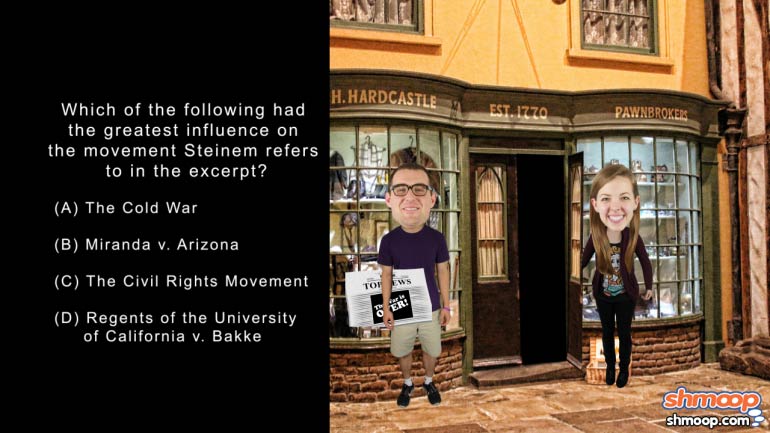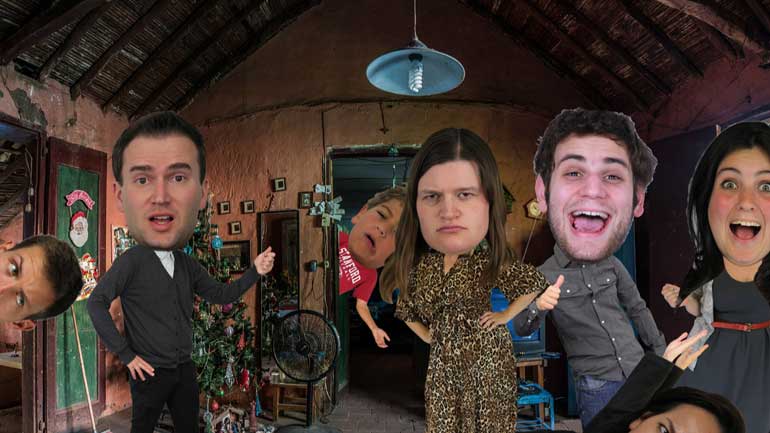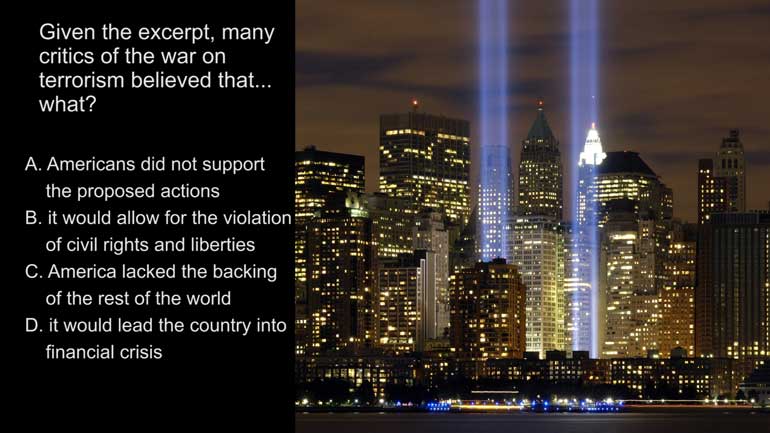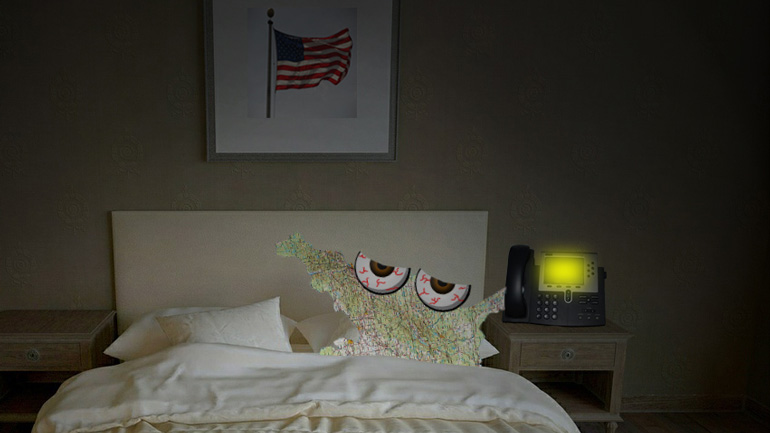ShmoopTube
Where Monty Python meets your 10th grade teacher.
Search Thousands of Shmoop Videos
Period 5: 1848-1877 Videos 18 videos
AP U.S. History 1.1 Period 5: 1848-1877. Which of the following groups would be most likely to support the idea of Manifest Destiny?
AP U.S. History: Religion and Reform in Antebellum America Drill 1, Problem 2. How did the creation of Kansas affect the country's political l...
AP U.S. History 1.2 Period 5: 1848-1877. Before the Civil War, the idea of Manifest Destiny was most complicated by which of the following issues?
AP U.S. History 4.3 Period 5: 1848-1877 17 Views
Share It!
Description:
AP U.S. History 4.3 Period 5: 1848-1877. The increased awareness of the 14th and 15th Amendments during the 1860s is most similar to which of the following later periods?
Transcript
- 00:00
Here's your shmoop du jour brought to you by repetition
- 00:06
they say that history repeats itself they say that history repeats itself [Soldiers marching on television]
- 00:11
moving on check out this painting right here a lot of flags alright here's our
- 00:16
question the increased awareness of the 14th and 15th amendments during the
- 00:19
1860s is most similar to which of the following later period and here the
Full Transcript
- 00:24
answer...... ok let's jump right in the 14th and 15th
- 00:30
amendments were added to the Constitution after the Civil War in an [US flag waving]
- 00:34
effort to protect african-americans from discriminatory treatment in a game of
- 00:38
pre-emptive whack Amole Congress tried to close any potential loopholes in [Man using US flag to whack a mole]
- 00:42
state government laws before they could restrict African Americans rights again
- 00:46
well section 1 of the 14th amendment had our four important part first it
- 00:50
guaranteed citizenship to anyone born on American soil which meant a lot of dirty [Woman given US flag after giving birth]
- 00:55
and muddy babies their second state did not have the right to strip any of its
- 00:59
residents of the privileges of their citizenship third every citizen is
- 01:04
guaranteed due process of law even if said process might shave years off your
- 01:09
life and last all citizens will be equally protected under the law [people under the law umbrella]
- 01:15
well the amendment continued by repealing the 3/5 clause restricting
- 01:20
political participation from former Confederate leaders and barring payment
- 01:25
to the former Confederate states for debts and losses of human property
- 01:29
it all sounds fair to us and the 15th amendment gave African American men the [African american man voting]
- 01:34
right to vote so now that we know what both of these amendments are about and
- 01:38
let's check out our potential answers here let's look at answer a in the
- 01:42
distant 1890s neither amendment was at the forefront of social or judicial
- 01:46
decision it wasn't having the desired impact yet which means we can rule out
- 01:51
answer a try B the 1920s were when the 19th amendment which gave women the [Women holding sign votes for women]
- 01:56
right to vote was passed definitely a step forward for equality but not our [Women high-fiving]
- 02:00
best answer answer C isn't right either in the 1940s the fight for civil rights
- 02:05
was put on the back burner in favor of World War 2 that means that answer D is
- 02:10
correct 100 years after the amendments were passed
- 02:13
the fight for equality used the groundwork laid by the 14th and 15th
- 02:16
amendments to ensure equality for all Americans you'd think something like
- 02:22
that would be at the top of America's to-do list maybe the number one item on [Man looking at to-do list]
- 02:26
the to-do list is revise the to-do list
Related Videos
AP U.S. History Exam 2.48. Which of the following had the greatest influence on the movement Steinem refers to in the excerpt?
The appeal of city living has always been strong. Can you figure out why new immigrants chose to live in big cities? Hint: they weren't trying to b...
AP U.S. History Exam 2.54. Given the excerpt, many critics of the war on terrorism believed that...what?
AP U.S. History Exam 2.43. The problem depicted in the image led to the creation of...what?
Take a look at this sweet question about Equal rights. ...Oh. It's not about the sweetener? Gotcha. Check it out anyway and see if you can find out...
